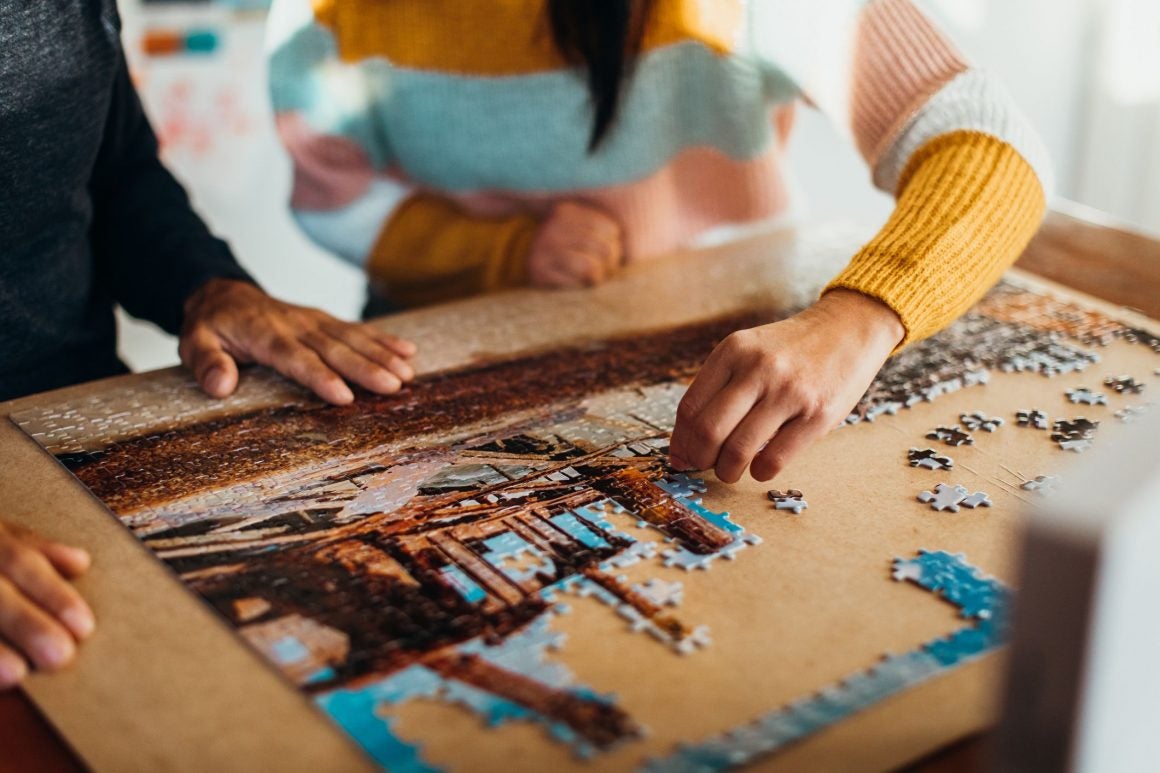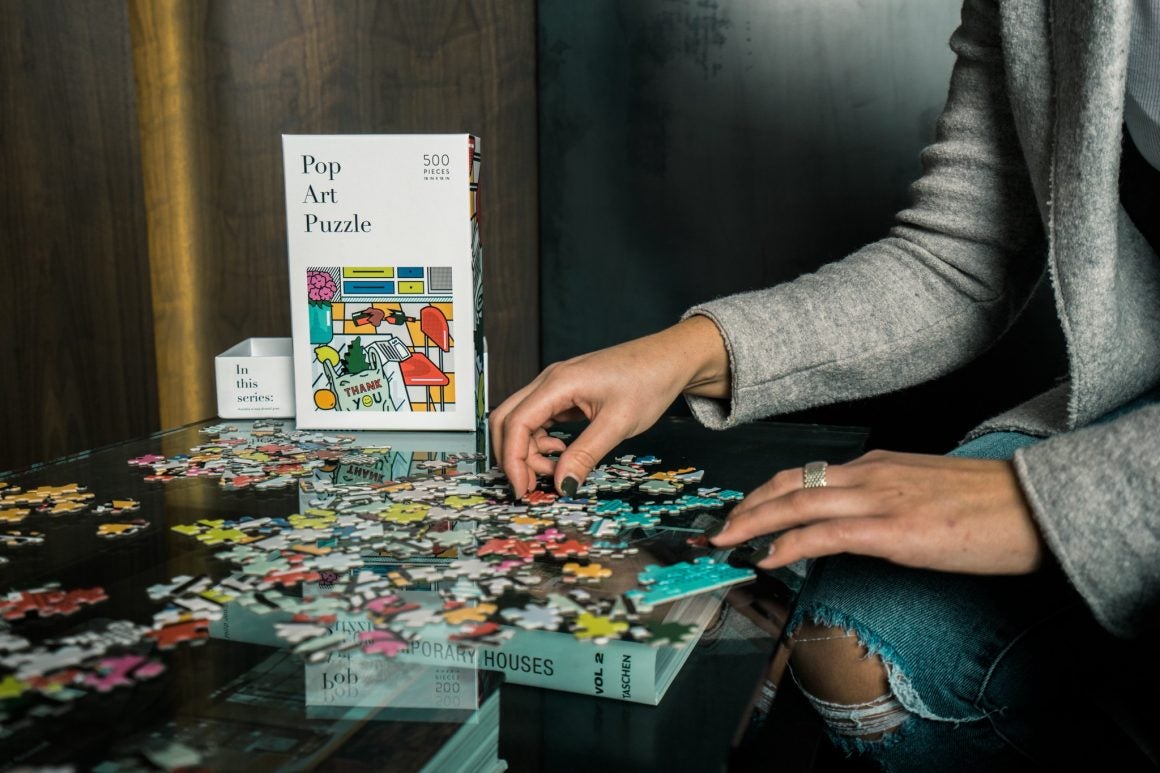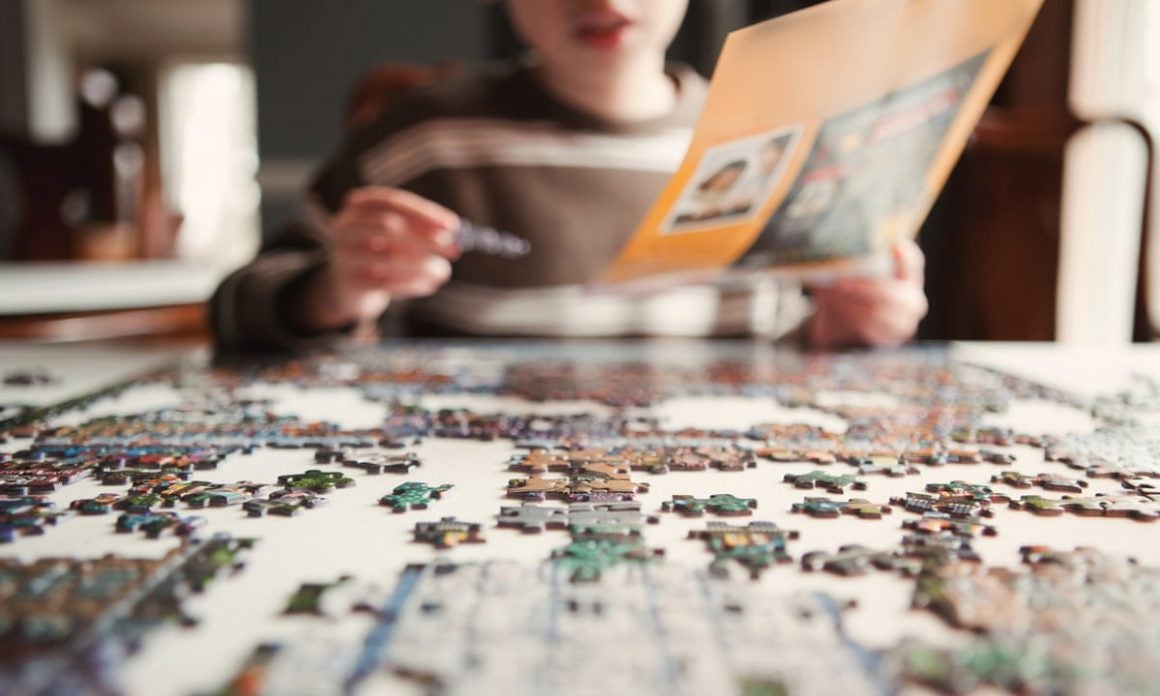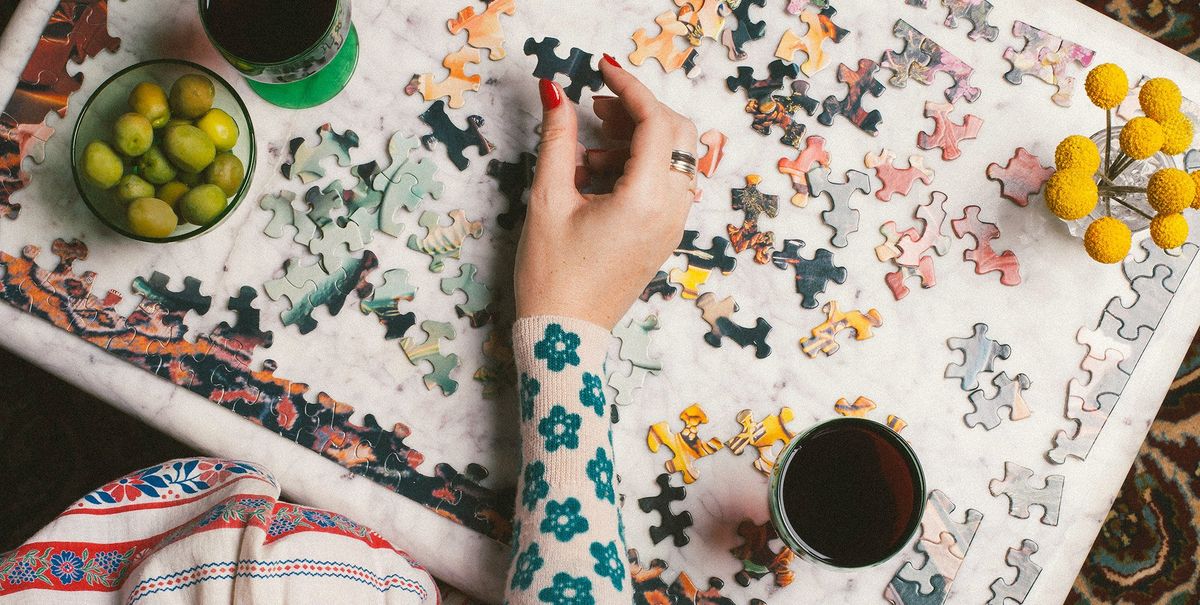The jigsaw puzzle has been around since the 1700s and kept lots of generations entertained long before Netflix, Tik Tok, and game consoles.
The jigsaw was initially developed as an educational tool, primarily for children. It teaches shapes, words geography, colors and provides focused, quiet time for children. It is used in schools to educate and develop fine motor skills and to prepare children for reading. Jigsaw puzzles are a marvelous tool for stimulating the brain, but this does not stop post-childhood. Dr. Susanne Jäggi at the University of Michigan points out that investing 20-25 minutes in a mental activity like assembling jigsaw puzzles for adults relieves stress and increases your IQ.
Research shows that carrying on this activity into adulthood has significant benefits. Studies, like the MacArthur study, show us that keeping the mind active with jigsaw puzzles and other activities that engage the mind can result in a host of improvements to both their mental health and general well-being, a better quality of life, a longer life expectancy, and reducing chances of developing certain types of mental illness, including memory loss, dementia, and even Alzheimer’s Disease. Let’s take a look at some of the key ways in which jigsaws have been helpful to adults in their everyday life.

The therapeutic power of puzzle building
The dopamine or also known as a feel-good neurotransmitter is released from the brain immediately as the puzzle comes to completion. The more success we have, the more dopamine is released and therefore the better we feel about ourselves, so our motivation naturally increases. Dopamine plays a key role in both learning ability, memory improvement, and concentration so by completing jigsaws frequently an adult can potentially establish a cycle of continuous improvement.
This relaxing pastime often reduces anxiety and lowers blood pressure. It is well known that while puzzling our brain transitions from a Beta, the wakeful state to Alpha, which is closer to what we reach when dreaming. This is also referred to as “focused” or “creative meditation” and allows us to clear our minds and forget any external concerns as we complete the task at hand, contributing to improved mood and self-confidence and reducing stress. Dopamine is additionally correlated to a reward-driven understanding, which suggests that a rise in dopamine levels causes our brains to strengthen our understanding. An increase of dopamine further engraves the practice of solving puzzles, which is why most people often experience an intense desire to go level up to puzzles that are increasingly challenging.

Jigsaw puzzles activate both sides of your brain at once
Your left brain is logical and analytical, while the right brain is creative and intuitive. When you’re doing a jigsaw puzzle, it actively triggers both sides of your brain. Jigsaw puzzles are one of the rare things which stimulate both sides of the brain so effectively and it explains why they have been such a popular learning tool to help with child development. Nowadays they are promoted as an effective way to protect our brains against future decline or even aid those affected by brain trauma or ailments like dementia. They are one of a kind mental workout that improves your problem-solving skills and attention span.
Indeed there is an immediate correlation between the number of years someone has been puzzling and their chances of developing Alzheimer’s, with evidence that the probability can be reduced by up to a third as soon as an adult starts doing jigsaws regularly. Additionally, to enhance our existing cognitive powers, researchers have found that adults affected by impaired memory who worked on a jigsaw just a few times every week showed improved memory function and decline of Alzheimer’s or maybe even having it reversed.

You will witness improved problem solving
Through puzzle solving we significantly improve our problem-solving skills, which are techniques for understanding the cause of problems, overcoming short-term crises, creating strategies to solve long-term problems, and finally turning problems into opportunities. The most important ones are defining and analyzing a problem, deciding and managing risk, and managing emotions.
They also develop critical and creative thinking, innovation and build better adaptive skills. Puzzles definitely demand we find different ways to solve a problem. There are a lot of mistakes and trials involved. In doing so, we learn the importance of coming up with theories, testing our hypotheses, and changing our perspective whenever something doesn’t quite add up. Applying these skills to our everyday or professional life we can create innovative and game-changing experiences for us.
Real memory boost
If you are the type that forgets where you placed your keys or where you parked, puzzles can be a cool way to help boost your memory. Or maybe you are the type that has a great memory, but puzzles can help keep it sharp and accentuate your memory even further. During puzzle-solving, you hold shapes and colors, and pieces in your mind as you constantly move your eyes around the board looking for potential fits, and imagining the bigger picture while dopamine, the chemical in the brain that’s responsible for memory, is being released.
Jigsaw puzzles help sharpen memory because they encourage the mind to stay actively working for a long period of time. Studies have shown that jigsaw puzzles are particularly useful for short term memory and can even stave off memory loss and dementia. By puzzling you also reinforce connections between your brain cells and also create new ones. All things considered, a great benefit.
Wrapping up
On the whole, when we are relaxed, satisfied, and confident, it is far easier to concentrate which makes us more productive. Taking a break from whatever task you are doing to do jigsaw puzzles allows you to relax and return to the task more refreshed and focused. They also do wonders for our mind, both children and adults benefit from improved memory and problem-solving skills, as well as creativity and temperament. Also worth remembering is that completing a jigsaw with family or friends can boost collaborative skills, communication, and improve relationships between those involved.
Main image Photo Source

















